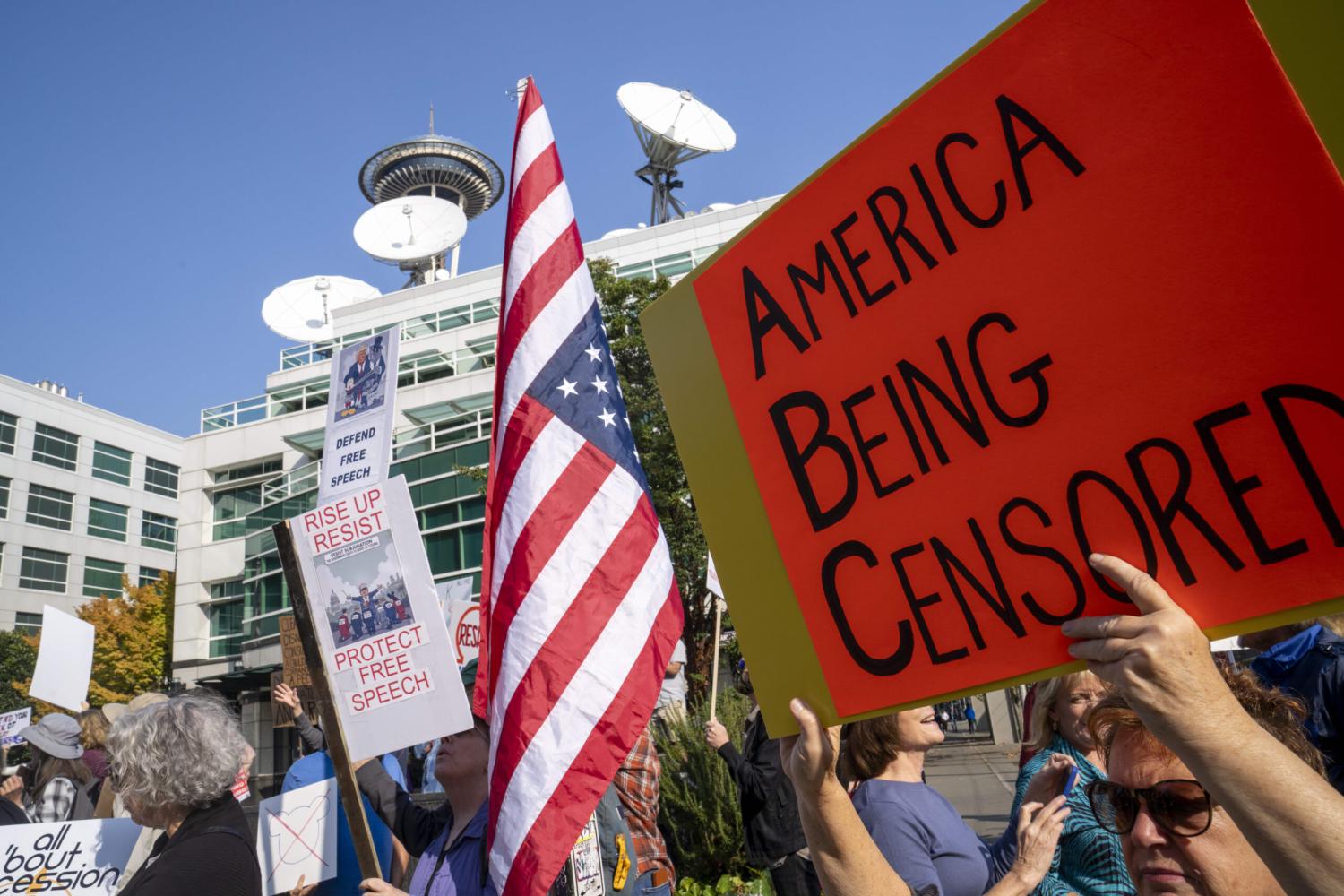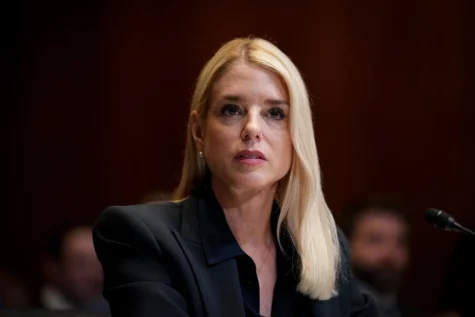
Emerson Watt | Opinion Editor
September 26, 2025
The assassination of political commentator Charlie Kirk on September 10th, 2025 has reignited a national debate over the state of free expression in America. This fire marks what many see as the beginning of a dangerous war on free speech as many Americans feel that the First Amendment is no longer treated as a universal guarantee, but as a privilege granted—or revoked—at the discretion of those in power.
This controversy began with Jimmy Kimmel’s comments on Kirk’s Assassination on his show, Jimmy Kimmel Live, where he criticized the “MAGA gang”, for trying to score political points off of the tragedy by pointing blame on the left. In response, ABC, a private company, exercised its right to suspend, or censor, content that violates its guidelines. While many see this as an extreme injustice to free speech, the reality is that private companies like ABC, NBC, and other media outlets may regulate commentators in order to maintain the integrity of their networks under their own rules.
The real issue at hand is when entities who are meant to abide by the rules of the constitution are consistently contradicting it. Donald Trump’s current regime is scarily making progress towards prosecuting free speech. A significant sign of this is simply shown by the actions of the president’s closest counterparts. According to BBC News, Marco Rubio, the U.S. The Secretary of State, “has revoked over 300 student visas,” the primary demographic being “Pro-Palestine” protesters. Many of these people who were accused have not been granted due process or found guilty of a crime. ABC News claims that Trump’s Department of Justice has also expanded surveillance on journalists covering protests, continuing to raise concerns that members of the press are being targeted not for crimes, but for the stories they choose to publish.

These actions send a dangerous message: dissenting voices, whether students or reporters, can be silenced without constitutional protection. When asked about her take on this raising threat to expression, senior Avalon Davis said, “The government doesn’t get to pick and choose which opinions are allowed. Once you start silencing one group, it’s only a matter of time before everyone’s voice is at risk.”
Along with the suppression of opposing political opinion, Trump’s cabinet has begun to push towards recognizing “hate speech” as a mode of censorship. Trump’s appointed attorney general for the current term, Pamela Bondi, warned the public that the current administration, “will absolutely target you, go after you, if you are targeting anyone with hate speech.” The phrase “hate speech,” is vague, raising questions about who decides what qualifies and whether this type of restriction conflicts with the First Amendment’s protection of free expression. Senior Mia Kocher described this remark by Bondi as, “concerning and severely unprofessional.” As our country’s Chief Law Enforcement Officer, she should know better than to propose dangerous ‘exceptions’ to the first amendment. Walking it back, Bondi claimed she meant to address the issue of “threats and political violence,” rather than actual hate speech, such as burning flags or opinionated publications.
A rational worry for the American people is that there lies opportunity for tyranny when the First Amendment is now being contested. If Americans allow the definition of free speech to be reshaped by those in power, then our most fundamental right loses its strength as the cornerstone of democracy.

Leave a Reply